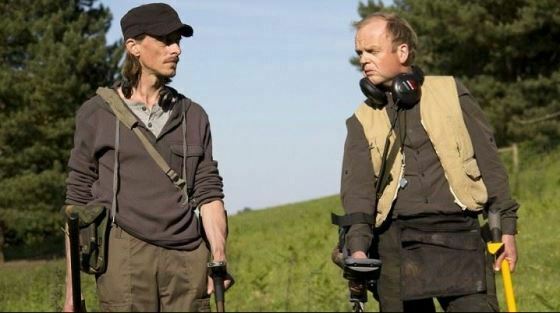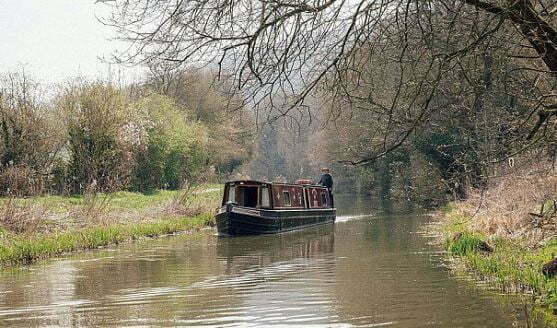
It’s that time of the year when you feel compelled to sum up that year. Well, some feel so compelled, and the newspapers and web are full of people’s reviews of 2015 in art, literature, sport, news, whatever. So, setting aside the feeling that years are arbitrary concepts and that the idea of things beginning in January and coming to a sensible conclusion in December doesn’t stand up to much scrutiny, I’m putting together a short series of posts on my thoughts on the year. And we start off with television.
Beginning at the top, the highlight of the year’s TV for me has been Fargo season 2. I wasn’t entirely sure about season 1, which seemed to me to be insufficiently distinct from the feature film that inspired it, and suffered from a villain who just didn’t make sense. But season 2 has been glorious. The first couple of episodes looked like they were trying too hard to be clever, but gradually a picture baroque and gothic and credible has emerged, in which two groups of criminals try to blast one another into oblivion, while a couple of policemen (Patrick Wilson and Ted Danson) try to maintain nobility and decency. A television series that tries to combine gang warfare with Ronald Reagan, cancer treatment, Albert Camus and flying saucers is probably showing off, but Fargo gets away with because it pushes narrative to the background and instead is propelled by the logic of dreams. It is also the wittiest (visually and verbally) piece of TV that I can remember, and a series that I shall immediately start watching all over again. The only sad thing about it is that it makes Fargo the feature film seem so slender – a story that’s over before it has barely got going.
Nothing else has quite matched up on Fargo in the dramatic stakes, though time has been too short to catch everything live, meaning that I shall spend much of 2016 discovering 2015. Better Call Saul, the Breaking Bad prequel, was great fun, but frustratingly unsure of itself, not knowing whether to be a series of stories or a single developing narrative. Hopefully series 2 will pull the threads together a little better.
I caught up on The Bridge at last, and followed series 3 live and thought it the tightest and most effective of the three. But I am more than a little weary of detective stories which are strung along by murderers who like to kill in patterns and leave clues behind as to their motive, which the police never manage to solve until the final episode. Of course you can only solve the mystery at the end, but that’s why detective stories are fundamentally foolish. Knowing how is not the same as knowing why. You have to lose the story as you progress and discover something else. That’s what Fargo does. The Bridge tries and fails, because at root its characters are silly, and it has no understanding of why it is important to be funny.

Talking of humour above story, Detectorists has been a joy. Mackenzie Crook’s wistful comedy about the hapless members of a metal detector club is touching in its feeling for human inadequacy, and artful in how it uses its theme of searching for gold as the key to understanding its characters’ dilemmas. The linking story in season 2 was a muddled affair about a German war plane, but it was just a skeleton onto which place the characters on their roads to self-discovery. It veered close to sentiment once or twice, but I suspect it has done wonders for the sale of metal detecting kits. And it is so beautifully shot – the triumphant backtracking shot at the end of series 2 was the visual coup of the year.
Other dramas? Well of course Wolf Hall was a tour de force, in which Mark Rylance made decades of past television acting look passé. I tried but just couldn’t engross myself in House of Cards, Orange is the New Black or Sons of Anarchy, though increasingly Netflix is my television channel and what was produced in any one year becomes increasingly irrelevant, as all becomes catch-up. And there’s the happy thrill of watching half of a programme on my TV and then finding the latter half waiting for me on my tablet, all cued up and ready to play. Toast of London lacks an element of sharpness which would elevate it from daft into brilliant, but just the idea of it raises a smile. And any programme which so meticulously reproduces the sand dance of Wilson and Keppel deserves garlands.
In the news and documentary world, I particularly admired Michael Cockerell’s Inside the Commons which managed the clever trick of celebrating all that is special about parliament while ridiculing its absurdities. It showed how the edifice was crumbling literally (the Palace of Westminster is falling to bits) and metaphorically, as the three-party system falls away. A series that will bring pleasure and insight years from now.

BBC Four’s All Aboard! The Canal Trip was pure joy – two hours travelling down the Kennet & Avon Canal, filmed in real time without the interruption of an edit. Background noises were discreetly muffled (no cars or aeroplanes could be heard), and while background texts occasionally drifted over the screen, for the most part you were encouraged to drift in a state of perfect calm. If it wasn’t of the epic duration of Norwegian slow TV, it was an epic achievement by British TV standards, and I’m greatly looking forward to All Aboard! The Sleigh Ride later this month. Television where time seems to slip away is time well spent.
Other great documentaries include the history series The Sound of Song, genially presented by Neil Brand with insight and a refreshing absence of gimmickry. Brand’s analysis of Kraftwerk’s ‘Autobahn’ while at the wheel himself was maybe my favourite TV sequence of the year. The Murder Detectives was something new – a real-life murder case filmed as though drama, that maintained integrity, tension and sympathy. Channel 4’s Unreported World is always compelling and frequently harrowing, but Ade Adepitan’s report, The Fight for Sight, on how medics in Malawi are restoring sigh to those suffering from cataracts was as heartening a piece of TV as you will find. Like all of the series, it compelled you to see the world differently.
The general election produced highly compelling television, as far as I was concerned. Some complained – as of course they would – that it was all too predictable and safe. Well, they were just looking at the wrong programmes. Here was television as service, platform for all the complexities of the national debate. The BBC Parliament channel covered all the live activity that it could and was outstandingly edited, breathlessly cutting between a stream of interviews, manifesto launches, stump speeches and press conferences that perfectly captured the excitement in the air. At work we recorded all of this for our TV news service. Whether posterity will have the stamina to sit through it all again I don’t know, but it felt important to be capturing all that we could.
Among the hundred of election programmes I liked More4’s live broadcast of the play The Vote, shown in real time on voting day (how interesting to see live theatre starting to return to our screens, what with ITV’s successful The Sound of Music yesterday). ITV had the best of election night coverage, beating the BBC regularly for insight and and speed of response (Channel 4’s election night coverage, however, was an embarrassment). But greatest of all was the three-minute interview with Ian Bone of Class War on BBC Parliament, explaining their manifesto outside Buckingham Palace with a mixture of earnestness and self-mockery. If elected, he promised, their first act would be to storm the palace, fill it with squatters, and send the royal family to work camps on the Isle of Skye. It’s clearly a plan he has been mulling over for some time, but his seriousness was undermined by a look that knew that such things would never be. It’s what TV does best, because it’s so simple – just someone who believes in something talking to camera, which faithfully records while at the same time unpicking that belief. It’s what keeps us watching.
Tomorrow, it’s the year in books.
Some personal favourites and now some to find. Who says that there’s nothing on the television
Many Thanks
He who is tired of television is tired of life, as Dr Johnson might have said.